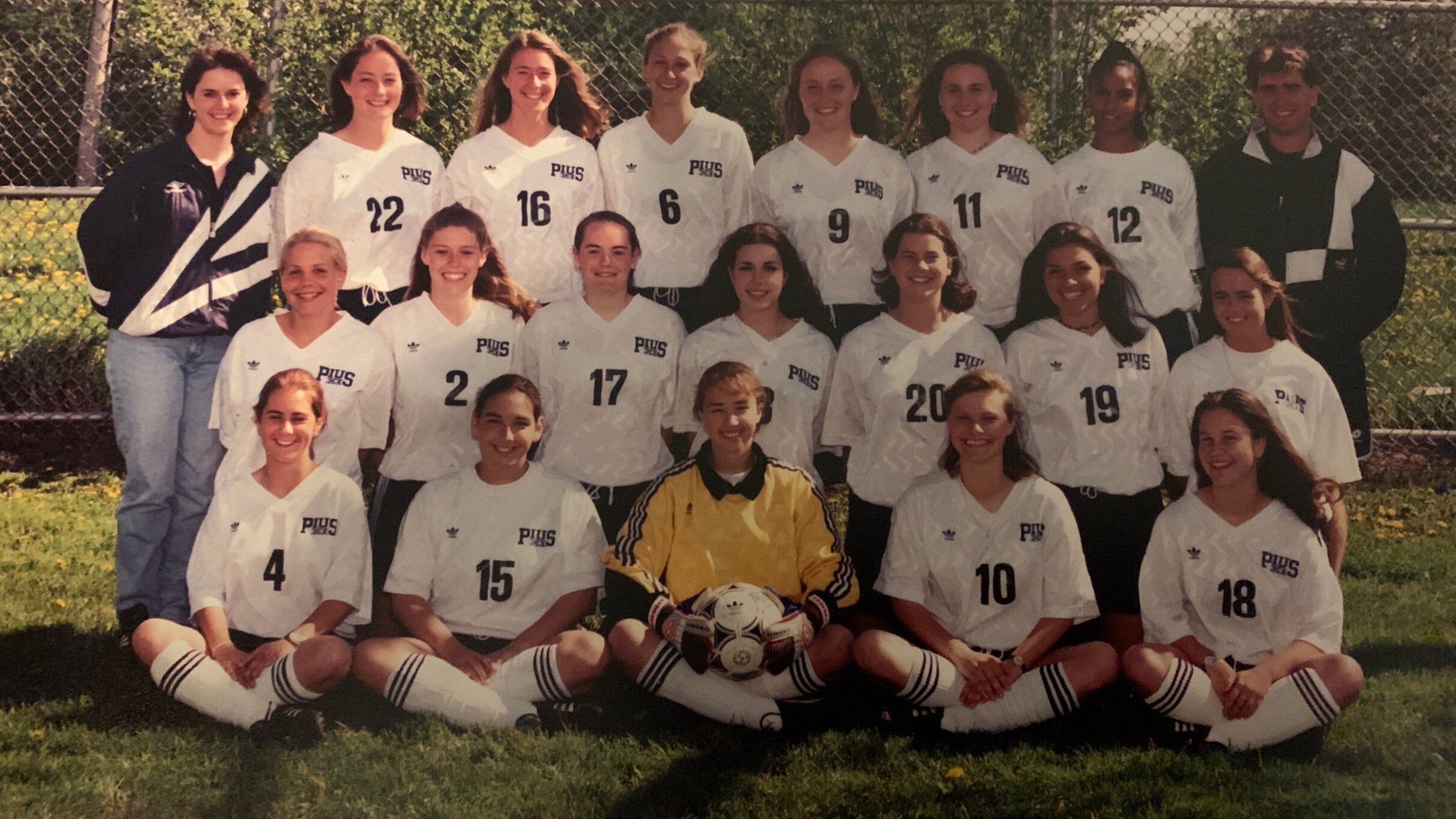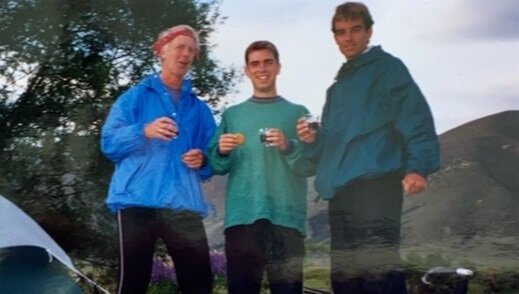My Coach - Jim Kearney
A mother approached Jim Kearney, her son’s cross country coach, “Coach, will you talk to my son. He’s refusing to get out of the car for the race.”
“No problem,” Mr. Kearney replied. He sauntered to the car. Years of long-distance running had turned his gait into a permanent Clint Eastwood-esque saunter –it fit his persona. He rapped his knuckles on the window. When the boy lowered the window, Mr. Kearney leaned in and said, “Get the ef out of the car and run your effin race.”
The boy ended up obliterating his personal record. After the race the mom went up to Jim to thank him. “I don’t know what you said, but it sure inspired him. Thank you.”
I never had Mr. Kearney as a coach. He wasn’t involved in soccer, though his son played in college. However, I did have him as a teacher in high school: American Literature, American Hero and AP English. Mr. Kearney’s classes tended to meander. He’d start off with the selected reading, then connect it to something in modern life, toss in a bit of mythology and then weave his way back to the original reading. Somehow he was able to connect Faulkner’s Joe Christmas and Twain’s Huckleberry Finn to the daily lives of a bunch of Milwaukee high schoolers.
Once, he devoted an entire class at our Jesuit high school to the ef word. We giggled and snickered but we were educated as he explained the word’s remarkable agility. “Do not underestimate the power of this word. It’s a noun, verb, adjective and adverb. It demonstrates the beauty and flexibility of language.” The man knew how to get your attention.
Mr. Kearney also coached hockey. He liked hockey, but liked cross country more. I never understood why. I mean what’s so interesting about just trying to run faster than you did the previous day. Doesn’t seem very complicated or engaging.
At MSOE, where I am the soccer coach, I spend a lot of time talking with our cross country coach. He’s helped me understand the sport’s appeal. The track or cross country coaches’ job is both simple and complex, he explains. You have to teach and inspire your athletes to never be satisfied with a result. To always strive to work harder, be better, for the next race. To do that, runners need not only to endure pain, they must learn to relish it. The long distance running coach has to make all those words we toss around so nonchalantly – resilience, perseverance and character – relevant to the athletes’ goals. This was Mr. Kearney’s special talent – the ability to tailor and teach universal values to unique individuals.
During one class my senior year, Mr. Kearney paused thoughtfully in the middle of his lesson plan and said, “I think you guys need to hear this. The faculty talks about you. We talk about you guys and some of the things we say aren’t very nice. In fact, we think some of you are assholes. So let me give you some advice, stop being assholes now before you wake up one day and spend the rest of your life regretting what an asshole you were.” I know what you’re thinking, but no he wasn’t talking directly to me. However, at the time, it did resonate, made me ask myself how my actions affect others – no simple task for a teacher talking to a bunch of high schoolers. In fact, it’s a question I still keep asking myself.
Making kids reflect was one of Mr. Kearney’s gifts – no, excuse me, one of his skills honed over a 50-year teaching career. I attended one of his classes in 2017. It was like watching my parallel life, the one I might have had if that round soccer ball hadn’t gotten in the way. He read a Native American creation story, asked the kids questions and listened to their answers. Some of their answers were a stretch, maybe even borderline ridiculous. But Mr. Kearney didn’t correct or belittle, he offered other perspectives. And, of course, he meandered further into Native American mythology. By the time he finished, we were back to the original story and how it connected to us personally. “We are telling the same creation stories,” he said. “The Navajos, the Jews, the Muslims – they share archetypes. These stories are universal, they are about all of us.”
We talked after class. “How do you do it?” I asked him. “Year after year teaching the same subject material? The staying up late grading papers, some of which I imagine are barely literate? That’s the job, isn’t it?”
His answer: “It’s rough, especially at the beginning. But as the semester rolls on and you see the students starting to make progress, it becomes fun and engaging.”
His answer was simple and obvious. If you don’t enjoy watching the kids get better, you’re in the wrong profession. It’s exactly what motivates me, whether I’m coaching college men, U16 girls or U6 coed. Being part of the process of helping kids get better, do better, is the reward.
Mr. Kearney never coached soccer, but he has coached me. Since 1986, whether diving into the wisdom found in William Kennedy novels, discussion of individual choices in Clint Eastwood’s The Outlaw Josey Wales, and story after tale after anecdote relating to the world of educating and coaching, Mr. Kearney has taught me to step back and ask myself the important questions.
Before I left, I asked him one of those loaded interviewer questions designed to elicit a long and detailed response: “What’s your secret to teaching?”
“Respect,” he responded.
One word, that’s it.
Just kidding. It’s Jim Kearney we’re talking about and he had more to say. “I’ve worked with some teachers and coaches who don’t respect the kids,” he elaborated. “Kids, like adults, like every human being, have opinions and backgrounds and circumstances and lives; if you don’t acknowledge and respect their uniqueness, it’s awfully hard to teach them. There’s a good chance they will just tune you out.”
A lesson worth learning and relearning over and over again. That’s why after 32 years out of high school I keep returning periodically to Mr. Kearney’s class.






